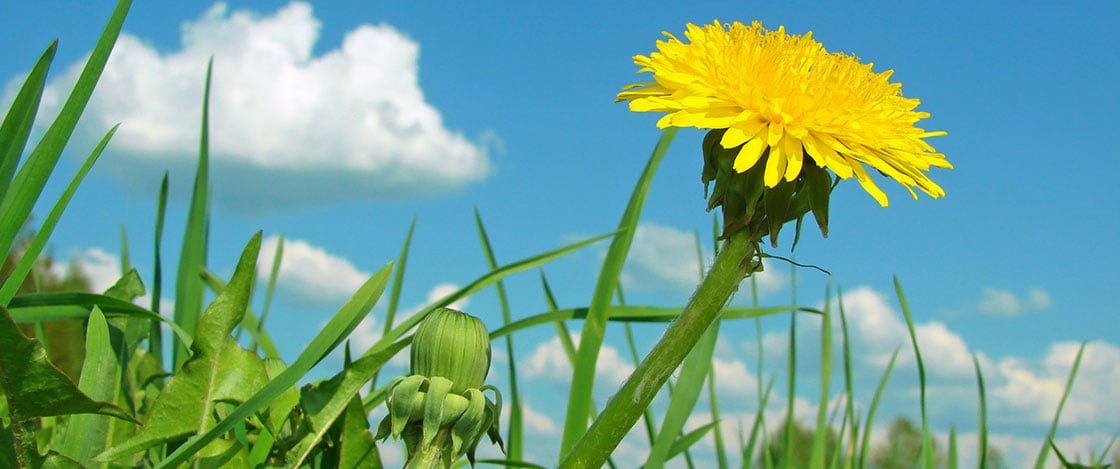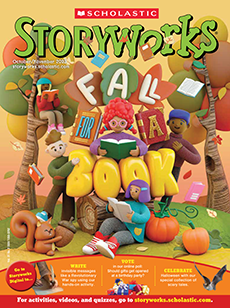For your budding scientists, show this New York Times video about the physics of flying dandelion seeds – the ones that fly through the air when you blow on a dandelion puffball.

The Dandelion
A poet admires the yellow flower’s undefeatable spirit.
Learning Objective: Students will understand personification in a poem that describes a dandelion as a king.
Standards
This time-lapse video of a dandelion from flower to seed head is sure to mesmerize your students.
More About the Story
Skills
personification, fluency, interpreting text, tone
Complexity Factors
Levels of Meaning
The poem challenges our usual view of dandelions as weeds, presenting their remarkable (often frustrating) resilience as a virtue.
Structure
The poem is 12 lines long and has an ABCB DEFE rhyme scheme.
Language
The poem contains some challenging vocabulary, such as haughty and reign, as well as personification and metaphor. The poet also uses “o’er” in place of “over” for the sake of rhyme.
Knowledge Demands
Readers will appreciate the poem more deeply if they understand how quickly dandelions spread and how unwelcome they are in many gardens.
1. Preparing to Read (10 minutes)
Set a Purpose for Reading
- Ask students to share what dandelions make them think of. (Responses might include summer, wishes, etc.) To them, are dandelions a pretty flower or a weed?
- Have them look at the poem and picture and make a prediction: Will it describe the dandelion positively or negatively?
- Invite a student to read aloud the Up Close box. Make sure students know that personification means giving human qualities to something that’s not human.
- Preview the annotations in white.
2. Reading the Poem (5 minutes)
- Invite a student to read the poem aloud for the class or play our audio version.
- Note: Vachel Lindsay (1879- 1931) promoted poetry as a spoken art form, with rhythms and rhymes like music. He traveled across the country doing public readings of his poems and was known for his animated performances. Encourage students to keep this in mind as they read the poem aloud!
3. Discussing the Poem (15 minutes)
- As a class, discuss the following questions from the Up Close box and annotations.
- What kind of person is the dandelion described as? Which words and lines in the poem tell you this? (personification) The dandelion is described as a king. The second line calls it “King of village flowers!” It has a coronation, and it brings a troop, as a king would have an army.
- What does the lawn-mower do to the dandelions? What happens next? How do you know? (interpreting text) The lawn-mower cuts off the heads of the dandelions, seeming to defeat the “troop.” But the dandelions grow back quickly. The last two lines say “you raise a sea of stars,/ More golden than before.” This refers to the many golden dandelions, looking like stars, that arise after being mowed.
4. Skill Building (15 minutes)
Get our brand-new Poetry Kit, which will take your students on a deep dive into the poem!
